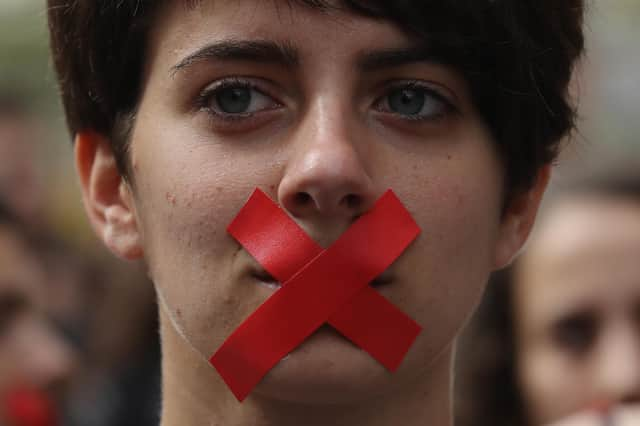Cancel culture's critics should engage in self-reflection about why they are losing work and friends – Laura Waddell


Moaning about cancel culture is undoubtedly a cushy media gig. There are now so many at it, they’re elbowing each other out of the way for the spotlight, a parade of failing celebs and tedious provocateurs who attribute their unpopularity to this supposed, rarely evidenced, phenomenon of moral censorship.
I haven’t come across a single alleged case of cancellation where I haven’t thought yes, I can see why your peers would distance themselves from you, you oblivious, self-entitled, self-interested whinger. And that’s at best.
Advertisement
Hide AdAdvertisement
Hide AdWhy, then, are their claims so rarely investigated? Let’s start at what they get out of it. Has making themselves out to be a martyr of British culture wars afforded the complainant a level of media attention their work alone does not inspire, particularly if they have a TV project, book or flagging career in the public eye to punt?
On a personal level, have these individuals done any self-reflection as to why they see a pattern of others distancing themselves? Why do individuals who can’t keep friends or maintain work relationships believe their interpersonal failures to be anyone else’s fault, and what’s more, that it’s a matter of public interest? When those who claim to be cancelled say they’ve lost friends, I suspect these ex-friends have their own, rather different reasons for backing away.
Is there, perhaps, a degree of narcissistic rage at play that the advent of social media has allowed proles their say? Are some better able than others to cope with the widening of critical avenues to the general public, and do they understand that making public one’s every thought by publishing it online is unlikely to be met with universal adulation?
Claims of being cancelled often come across as an attempt to deflect from credible points made by critics, counterattacks taking advantage of bottomless media hunger for clickbait culture war stories.
To what extent does complaining about ‘cancel culture’ aid the right-wing political project of delegitimising protest? How often is crying about ‘cancel culture’, particularly when questioned about attitudes towards vulnerable groups, a manipulative way to cast themselves as victim? I certainly believe it of the men who tried to undermine how the #MeToo movement exposed abuses of power by hysterically wailing they can’t even talk to women in the office anymore.
Complainants often say whatever industry they belong to is at risk from cancel culture, presenting their own fortunes as proof. Art and media are still dominated by the independently wealthy, the rich-poor gap is widening, arts education and funding is at risk, mental health is in crisis, we’re in a global pandemic, and Brexit is a nightmare for small businesses and touring musicians.
All these issues come higher up the list as threats to the creative industries than those blaming cancel culture for jokes punching down at minorities getting few laughs.
How do cancel-culture ‘victims’ rank their alleged misfortunes against the journalists, writers and dissenting public figures imprisoned and murdered for their views worldwide, as highlighted by the work of charities such as Amnesty International?
Advertisement
Hide AdAdvertisement
Hide AdDo D-list celebs complaining about being silenced via prestigious media outlets ever consider how ignorant they appear, set against the global reality of threats to freedom of speech?
A message from the Editor:
Thank you for reading this article. We're more reliant on your support than ever as the shift in consumer habits brought about by coronavirus impacts our advertisers.
If you haven't already, please consider supporting our trusted, fact-checked journalism by taking out a digital subscription.
Comments
Want to join the conversation? Please or to comment on this article.

